The 1968 U.S. Olympic Team Oral History Project
Athletics (Track and Field)
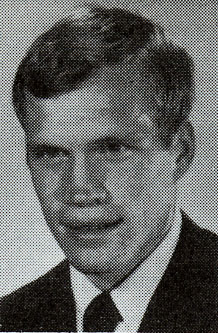
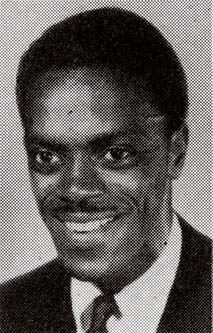
Ralph Boston
The youngest of ten siblings, Ralph Boston was born and raised in Laurel, Mississippi. Boston excelled as a student and NCAA title athlete at Tennessee State University. In 1960, he broke the long jump world record held by Jesse Owens for 25 years. Boston set an Olympic record and took the gold medal in the long jump at the 1960 Olympic Games in Rome. Boston won the silver medal at the 1964 Tokyo Olympic Games and he completed his medals by winning the bronze medal for the long jump in the 1968 Olympic Games in Mexico City.
Listen to the full story
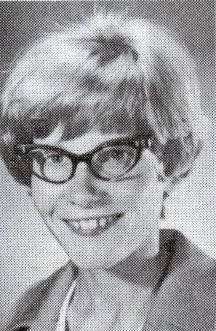
Doris Heritage Brown
Listen to the full story
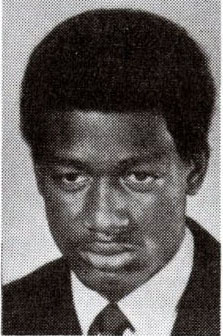
Reynaldo Brown
Listen to the full story
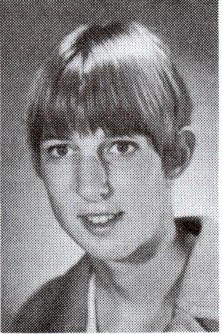
Sharon Callahan (McKniff)
Listen to the full story
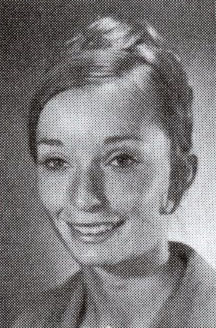
Lois Drinkwater (Thompson)
Listen to the full story
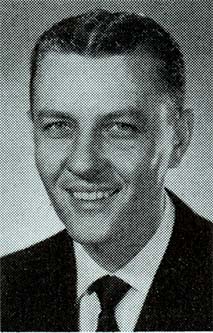
Brice Durbin
Brice Durbin was born in Missouri and grew up in Kansas. He spent more than 40 years as a coach and as a state and national athletics administrator. Durbin’s numerous posts include terms on the National Basketball Rules Committee, the U.S. Track and Field Federation, and the U.S. Olympic Committee. Durbin served as U.S. national track team manager during the 1968 Olympic Games in Mexico City.
Listen to the full story
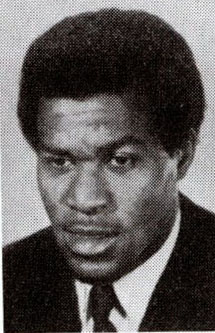
Lee Evans
Listen to the full story
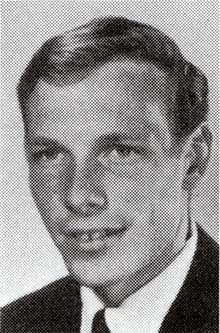
Tom Farrell
Tom Farrell was born and raised in New York. He was an NCAA champion in 1964 and 1965 and he finished 5th in the 800 meter race in the 1964 Tokyo Olympic Games. In 1968, Farrell won the U.S. Olympic Trials for the 800 m and went on to win the bronze medal in that event in the 1968 Olympic Games in Mexico City.
Listen to the full story
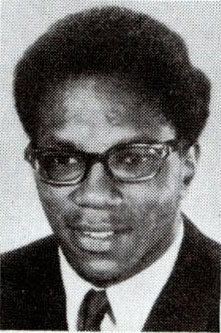
Ron Freeman
Listen to the full story
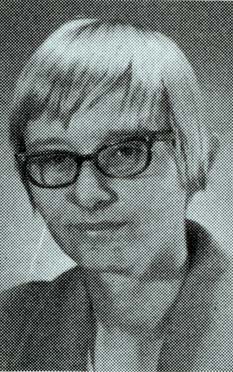
Barbara Friedrich
Listen to the full story
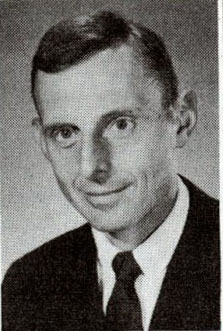
Rudy Haluza
Listen to the full story
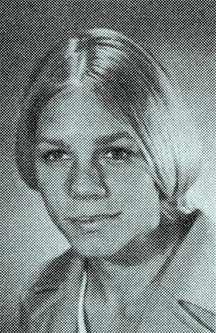
Francie Kraker (Goodridge)
Francie Kraker was born in Ann Arbor, Michigan. She became a champion middle distance runner at Long Island University and at the University of Michigan. Kraker ran the 800 meters event in the 1968 Olympic Games and the 1,500 meters in the 1972 Games. She coached women’s junior high, high school, and college track. After the passage of Title IX, Kraker was amongst the first female administrators appointed to a Division I university position.
Listen to the full story
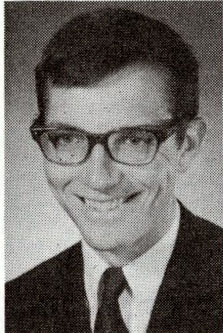
Ron Laird
This four time Olympic racewalker hails from Louisville, Kentucky where he was born on May 31, 1938. Although his best Olympic finish in the men’s 50km walk is 19th place, Laird took home the gold in the 1967 Pan American 20km walk as well as 65 national championships in a career spanning three decades. During his successful career, Laird held 81 American records and was named the outstanding US race walker six times.
Listen to the full story
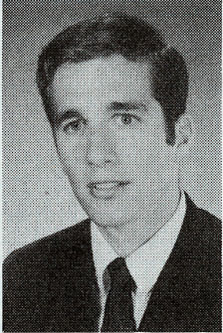
Marty Liquori
Marty Liquori was born and raised in New Jersey. In 1967 he became the third American high school student to break the four minute mile. Though injuries kept 19 year-old Liquori from being a top finisher in the 1,500 meter race at the 1968 Olympic Games in Mexico City, he went on to a very successful and storied track career that lasted another decade. Liquori ran for Villanova University and later became a sports commentator for broadcast television. He also founded a chain of successful athletic footwear stores that sponsored several athletes. Today Liquori is enjoying retirement in Florida where he is a professional jazz guitarist.
Listen to the full story
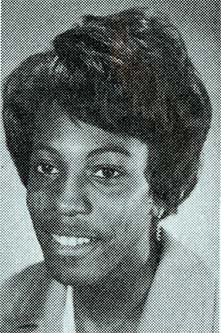
Madeline Manning (Mims)
Listen to the full story
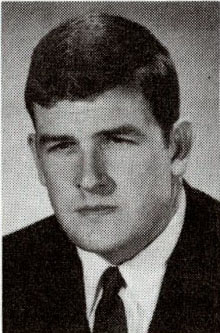
Randy Matson
Listen to the full story
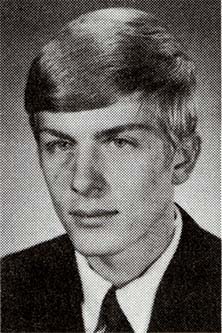
Van Nelson
Listen to the full story
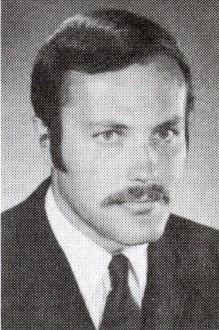
Larry Questad
Listen to the full story
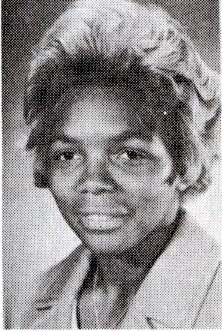
Mamie Rallins
Listen to the full story
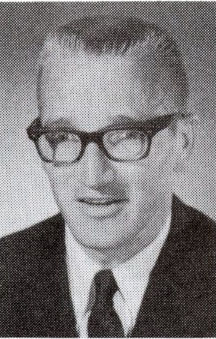
David Romansky
Listen to the full story
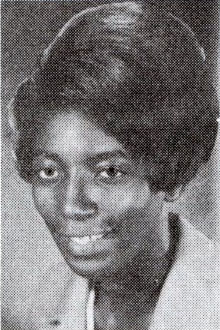
Jarvis Scott
Listen to the full story
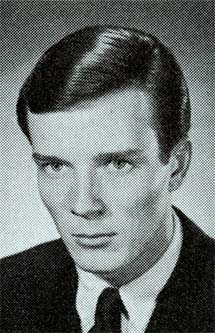
Bob Seagren
Listen to the full story
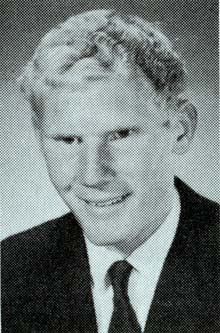
Tracy Smith
Tracy Smith was born and raised in California. He won multiple national titles in four different running distances between 1966 and 1969. After running track at Oregon State, Smith enlisted in the Army to fulfill his military obligations. Luckily, he was able to continue his training in the Army and in 1967 Smith set a world record in the three-mile race. Smith ran the 10,000 meter race in the 1968 Olympic Games in Mexico City where he faced steep competition from African distance runners who had been born and raised at high-altitude.
Listen to the full story
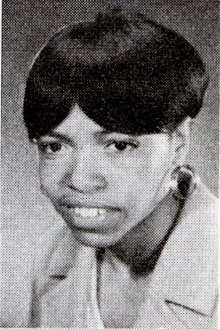
Esther Stroy (Harper)
Esther Stroy Harper was born and raised in Washington D.C. in a large family. Stroy was competing for the Sports International Track Club by the time she was 13. Though she favored the 200 m dash, Stroy’s famed coach, Brooks Johnson, trained her to excel in the 400 m event. She was just 15 years old when she competed in the 1968 Olympic Games where an injured hamstring resulted in a 5th place finish in the semi-finals. She attended but did not compete in the 1972 Games due to the same injury. Stroy later went on to coach at Stanford University.
Listen to the full story
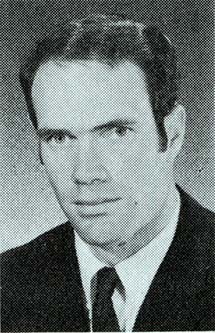
William (Bill) Toomey
Listen to the full story
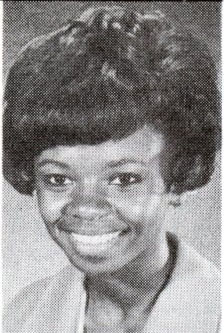
Martha Rae Watson
Listen to the full story
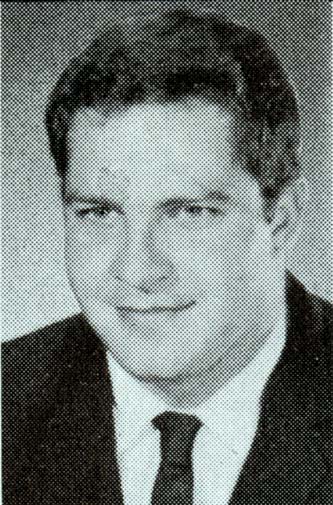
George Woods
George Woods was born is Missouri in 1943 and set a Missouri state high school record for the shot put before attending Southern Illinois University on athletic scholarship. Woods set six indoor world records for the shot put, won ten championships, and made the U.S. Olympic Team three times: 1968, 1972, and 1976. Woods won the U.S. Olympic track and field team trials in shot put in 1968 and 1972 before winning Olympic silver medals in Mexico City in 1968 and in Munich at the 1972 Olympic Games. Woods competed in but did not medal at the 1976 Olympic Games in Montreal.
Listen to the full story
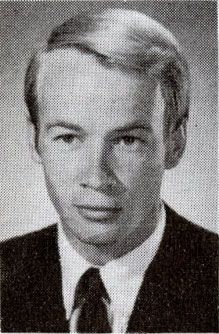
Larry Young
Listen to the full story
Basketball
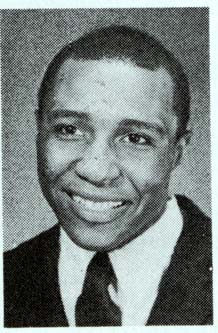
JoJo White
Listen to the full story
Boxing
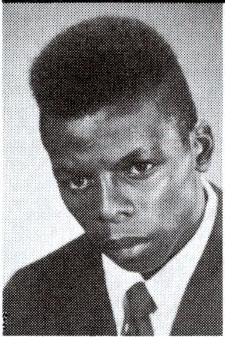
John Baldwin
Listen to the full story
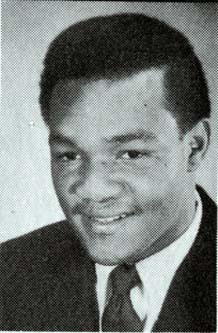
George Foreman
George Foreman was born in Marshall, Texas and grew up in Houston. In 1965, Foreman was seventeen when he qualified for Job Corps, a U.S. Department of Labor program that provides free education and job training for low-income young adults. Foreman was introduced to boxing at a Job Corps center in Pleasanton, California. With less than three years of experience in the sport, Foreman won a place on the 1968 Olympic Team and went on to win the heavyweight gold medal in Mexico City.
Listen to the full story
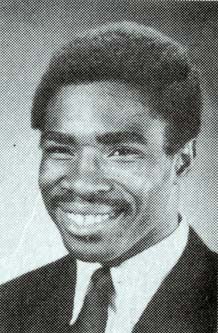
Al Jones
Born in Detroit, Michigan, Alfred Jones (a.k.a. “”Tiger Cat””) won the bronze medal in middleweight boxing at the 1968 Olympic Games in Mexico City. Prior to his Olympic debut, Jones won the National Golden Gloves Middleweight Championship, having defeated Dave Matthews of Buffalo, New York. Jones turned professional in 1969 and won the first 12 matches of his professional career. After a KO in 1971, Jones retired from the ring.
Listen to the full story
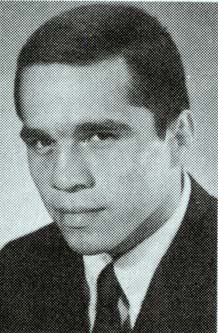
Armando Muniz
Listen to the full story
Canoe/Kayak
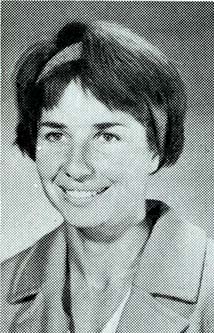
Marcia Smoke
Listen to the full story
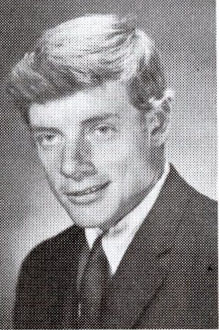
Andreas Weigand
Listen to the full story
Cycling
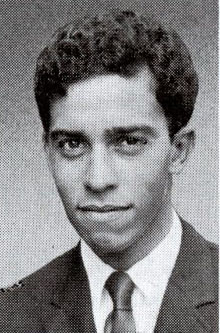
Oliver Martin
Oliver “Butch” Martin was born and raised in New York City. As a teenager he competed in European races on an Italian cycling team. Martin was a member of the 1964 and 1968 U.S. Olympic Cycling Teams (100 K Team Time Trial). He won more than 50 national and international races during his career and placed within the top 5 finishers in another 37 races. Martin began coaching the U.S. national road cycling team in 1974, leading them to several breakthrough place finishes including the Montreal Olympic Games in 1976.
Listen to the full story
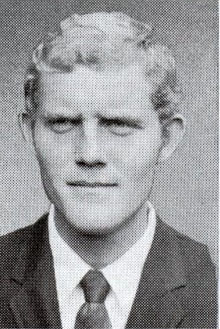
John Howard
Listen to the full story
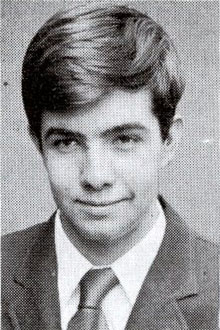
Jim Van Boven
Listen to the full story
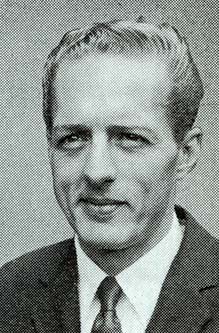
Wess Wessberg
Listen to the full story
Diving
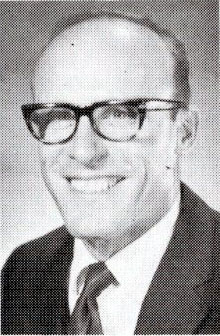
Hobie Billingsley
Listen to the full story
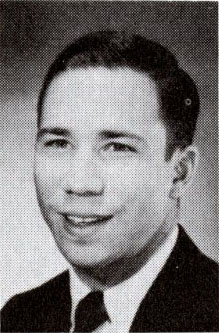
Rick Gilbert
Rick Gilbert, born on September 23, 1943 in Lancaster, Pennsylvania, competed in men’s platform diving at the 1968 Olympic Games in Mexico City. Although he finished in 17th place, his abilities as an amateur photographer preserved many memorable images of the Games.
Listen to the full story
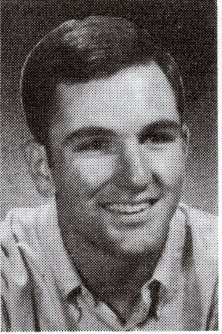
Jim Henry
Listen to the full story
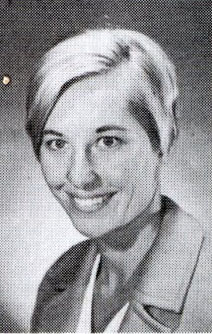
Micki King
Listen to the full story
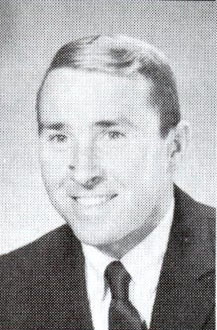
Ron O’Brien
Listen to the full story
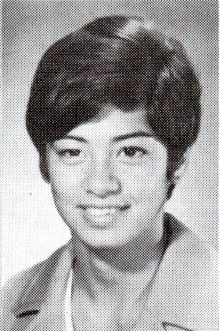
Keala O’Sullivan (Watson)
Listen to the full story
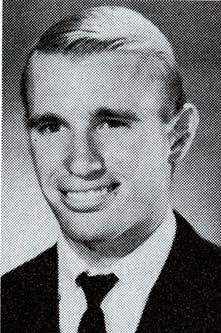
Keith Russell
Keith Russell was born in Mesa, Arizona and was a member of the Dick Smith Swim Gym, which produced several notable diving champions. Russell won silver medals in diving at the World University Games and the Pan Am Games in 1967; in 1968 he won the NCAA three-meter diving championship while competing for Arizona State University. Russell placed fourth in Men’s Platform Diving and 6th in Men’s Springboard Diving at the 1968 Olympic Games in Mexico City. He has since enjoyed a long and successful career as a coach; he’s currently the head diving coach at Brigham Young University.
Listen to the full story
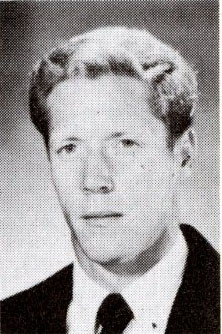
Bernard Wrightson
Listen to the full story
Equestrian
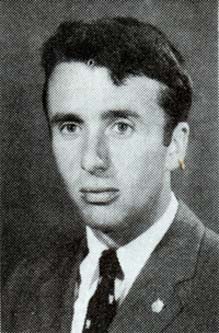
Michael Page
Listen to the full story
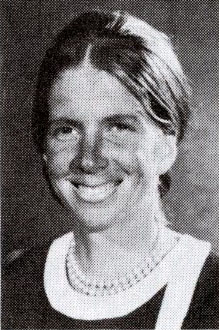
Donnan Plumb (Sharp)
Listen to the full story
Fencing
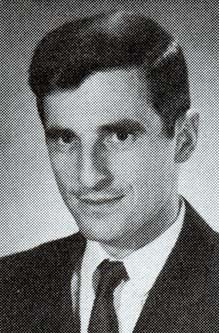
Tom Balla
John Thomas Balla was born in Budapest, Hungary in 1936. As a boy, Balla began fencing in Budapest. At 20 years old, he left Hungary as a refugee in 1956 and was granted political asymlum in the United States where he earned his citizenship. Balla fenced with a club in Philadelphia and from there, earned a spot on the U.S. Olympic fencing team in 1968. Balla proudly represented his adopted country in the Men’s Sabre Fencing event at the Olympic Games in Mexico City.
Listen to the full story (View Transcript)
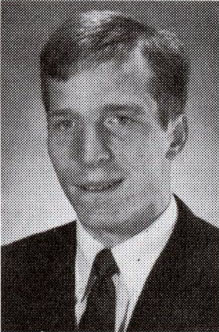
Dan Cantillon
Listen to the full story
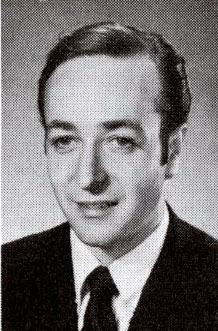
Herb Cohen
Listen to the full story
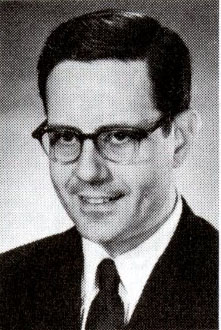
Bill Latzko
Listen to the full story

Connie Latzko
Listen to the full story
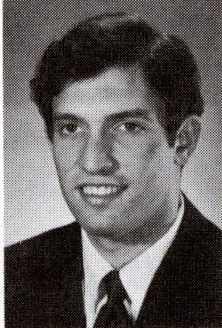
Steve Netburn
Listen to the full story
Gymnastics
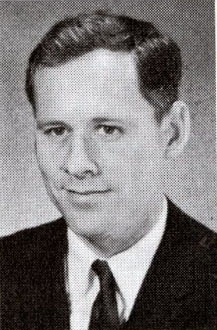
Jack Beckner (coach)
Listen to the full story
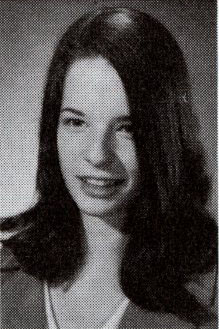
Diane Bolin (Kelly)
Listen to the full story
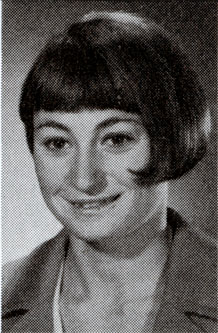
Wendy Cluff (Perez)
Listen to the full story
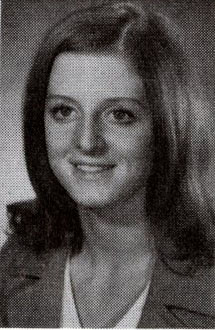
Kathy Gleason (Jachter)
Listen to the full story
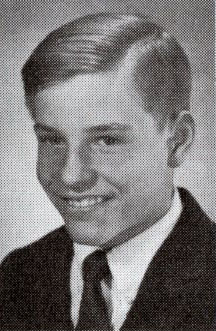
Steve Hug
Listen to the full story
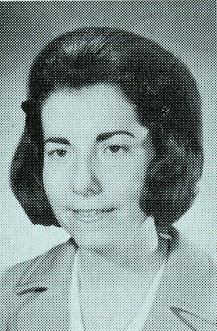
Patricia Melcher (Bissell) (pianist)
Listen to the full story

Carolyn Pingatore (Holmes)
Carolyn “”Ping”” Pingatore Holmes was born and raised in Seattle, Washington. Though she did not pursue competitive gymnastics until she was a teenager, she was winning national championships by the time she was 16. At 17, Holmes won a spot on the 1968 U.S. Olympic Women’s Gymnastic Team. She had the time of her life in Mexico City and later went on to coach her sport. Holmes has continued to make significant contributions to the rules and governance of her sport and to the Olympic Movement.
Listen to the full story
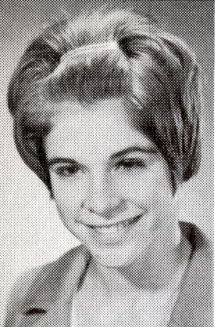
Joyce Tanac (Schroeder)
Listen to the full story
Modern Pentathlon
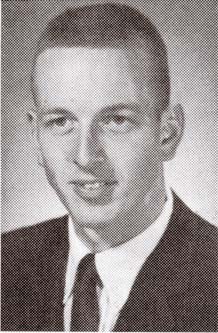
Tom Lough
Maurice Thomas “”Tom”” Lough was born in Harrisonburg, Virginia, in 1942. He attended the U.S. Military Academy at West Point, New York, where he competed in fencing and triathlon (running, swimming and pistol shooting). After graduating from West Point in 1964 with a B.S. in General Engineering, Lough served in Korea as a combat engineer with the 7th Infantry Division. In 1966, he was assigned to Fort Sam Houston, Texas, where he trained in modern pentathlon (horseback riding, fencing, pistol shooting, swimming, and cross country running). At age 26, Lough competed in the modern pentathlon at the 1968 Olympic Games in Mexico City. Immediately after the 1968 Games, Lough, an Army captain, returned to military duty in VietNam as a company commander with the 326th Engineer Battalion (Combat), 101st Airborne Division. He received a Purple Heart and Bronze Star with”V” because of his heroic actions in May of 1969; he was shot down in a Huey helicopter over Hamburger Hill yet still managed to lead a team of combat engineers and secure a landing zone for the infantry unit. After ten years of Army service, he resigned to start a career in science education. Lough earned two Masters’ degrees (Geodetic Science and Physics) before earning a Ph.D. in Educational Psychology, followed by an MBA in Finance. Lough recently completed a 17-year period of service as a science education professor at Murray State University in Kentucky. Lough still competes in Masters track events. He maintained his involvement in the Olympic Movement by serving as national director for the Bicentennial Olympic Project in 1976 and by acting as a torchbearer on the Olympic Torch Relay Team for the 1996 and 2002 Games. Moreover, Lough has coordinated the reassembly of the 1968 U.S. Olympic Team and has been instrumental in establishing the 1968 U.S. Olympic Team Oral History Project and Legacy Archive at the University of Texas. He has also organized a number of alumni and reunion events of the 1968 U.S. Olympic Team.
Listen to the full story
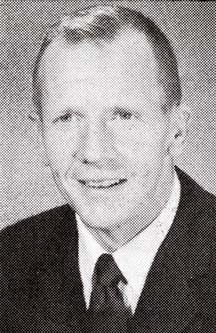
Jim Moore
Listen to the full story
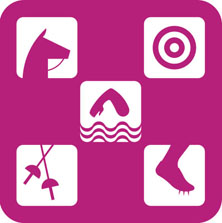
John Russell
Lieutenant Colonel John Russell was born in Dauphin, Pennsylvania in 1920. He participated in equestrian sports while growing up on his family’s farm. Colonel Russell is a decorated veteran of World War II, having served in the U.S. Army in North Africa, Germany, and Italy. After the War, Russell competed in equestrian jumping at the 1948 Olympic Games in London and he won a bronze medal in this event at the 1952 Olympic Games in Helsinki. The Colonel has coached six U.S. Olympic Modern Pentathlon teams, including the 1968 delegation in Mexico City. At the age of 94, Russell operates a successful horse farm in San Antonio, Texas and he is still actively involved in coaching and judging equestrian sports.
Listen to the full story
Rowing
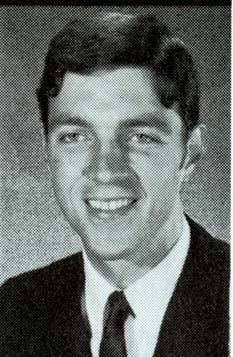
Curt Canning
Listen to the full story
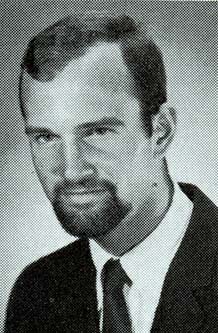
Jake Fiechter
Jacques Poindexter Fiechter was born and raised in Pennsylvania. He attended Harvard University where he captained a very successful varsity rowing crew. After graduating in 1967, Fiechter rowed with Vesper Boat Club in Philadelphia and won a place as a spare rower (alternate) for the eight man U.S. Olympic crew in 1968. When illness forced one of the regular U.S. crewmembers from the boat, Fiechter stepped in to row in the Olympic finals.
Listen to the full story
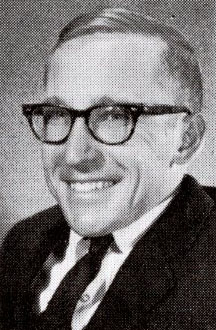
John Hartigan
Listen to the full story
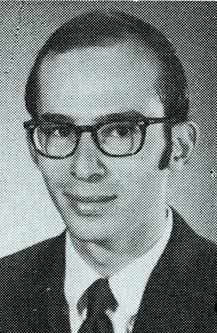
Paul Hoffman
Paul Hoffman was born in New York but raised in the Virgin Islands. He attended Harvard University where he joined the rowing team as coxswain. Hoffman coxed the U.S. eight man crew in the 1968 Olympic Games and was a major supporter of the Olympic Project for Human Rights. He returned to cox the U.S. eight man crew in the 1972 Munich Games where he won a silver medal. Hoffman served in the Peace Corps and later returned to Harvard to earn his law degree.
Listen to the full story
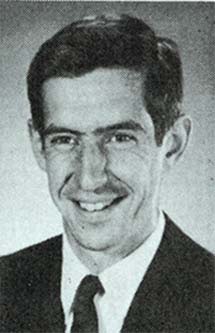
Tony Johnson
Listen to the full story
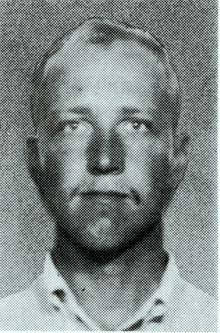
Luther Jones
Luther H. Jones, III was born and raised in Idaho. The 6′ 5″” Jones was athletic but had no experience in rowing when he was recruited to the rowing program at the College Boat Club of the University of Pennsylvania. After rowing for only one year, Jones finished 5th in the Men’s Coxed Fours rowing event at the 1968 Olympic Games in Mexico city. Jones also competed in the Coxed Pairs event at the 1972 Olympic Games in Munich.
Listen to the full story
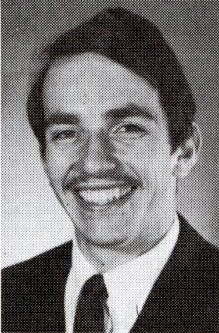
Andrew Larkin
Listen to the full story
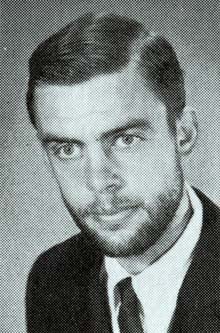
John Nunn
John Nunn was born in 1942 in Terre Haute, Indiana but he grew up in various northern states. He attended high school in Canada where he played football, basketball, and cricket. His grandfather rowed for Columbia University and his father played lacrosse and football for Cornell University before becoming a professional football player with the Boston Shamrocks, 1936 American Football League champions. The 6′ 5″” Nunn had wanted to play football, as his father had, for Cornell University but was recruited to the rowing program instead. However, it was not until after he graduated from Cornell that Nunn reached his peak performance in rowing. In 1967, Nunn won a silver medal in the single sculls event at the Pan American Games before partnering with Bill Maher to win a bronze medal in the double sculls at the 1968 Olympic Games in Mexico City. With partner Tom McKibbon, Nunn won a bronze medal in the double sculls event at the 1971 Pan-Am Games.
Listen to the full story
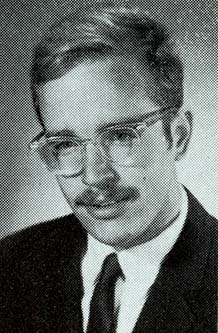
Bill Purdy
Listen to the full story
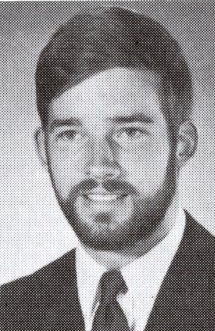
Scott Steketee
Listen to the full story
Shooting
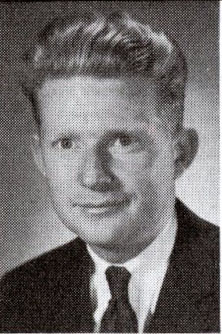
Gary Anderson
Gary Anderson was born and raised in Nebraska. Through hard work and dedication, Anderson became a world champion rifleman in the 1960s. The U.S. Army assigned Anderson to its elite Marksmanship Unit at Fort Benning, Georgia in 1959 and he competed internationally as part of the U.S. Army team throughout the 1960s. In addition to 7 world championships, 6 world records, and 16 national titles, Anderson also won two consecutive Olympic gold medals at the 1964 Tokyo Games and the 1968 Mexico City Games in the 300 m, 3 positions rifle event.
Listen to the full story (View Transcript)
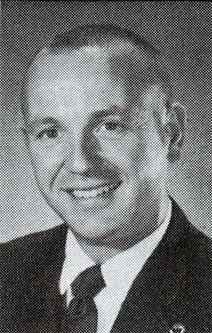
John Foster
Listen to the full story
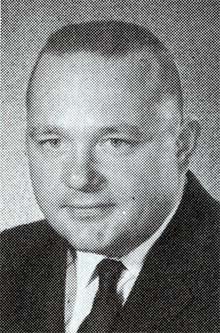
Arnold Vitarbo
Arnold Vitarbo, record-setting marksman, was born and raised in the Bronx, New York. Though Vitarbo began sport shooting while enlisted in the Marine Corps in the 1950s, it was not until he was 27 and serving in the U.S. Air Force that he made his mark in elite competitive shooting. At 32, Vitarbo placed 4th in the mixed free pistol event in the 1968 Olympic Games in Mexico City. Vitarbo coached the U.S. national shooting team in the 1992 Olympic Games in Barcelona, and, as of 2013, he continues to remain very active in the sport.
Listen to the full story
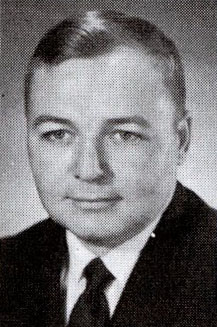
Lones Wigger
Listen to the full story
Swimming
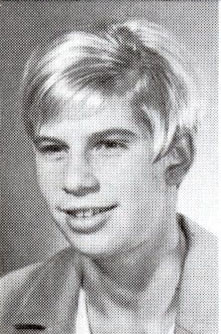
Susan Atwood
At only 15 when she competed in the 1968 Olympic Games, Susan Atwood was one of the youngest athletes on the team. While she did not advance past the preliminary heats of the women’s 200 meter backstroke, she went on to obtain three medals in the 1971 Pan American Games and claim the world record in the 200 meter backstroke before the 1972 Olympic Games in Munich. During those games, Atwood competed in the 200 meter and 100 meter backstroke, winning both a silver and a bronze, respectively.
Listen to the full story (View Transcript)
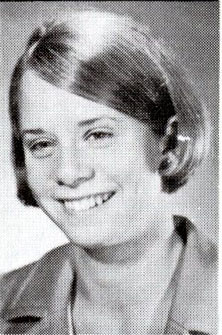
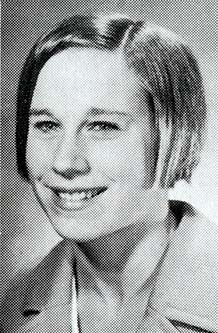
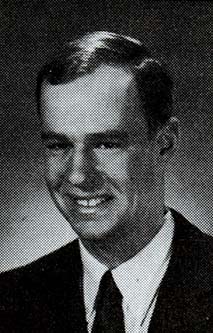
Brent Berk
Brent Berk was born in Eustis, Florida but grew up swimming in Honolulu. With a move from Hawaii to famed Santa Clara (California) Swim Club to swim under renowned coach George Haines, Berk entered the world of elite swimming and began training for a spot on the U.S. Olympic team when he was just a teen. Though favored to place higher, Berk succumbed to illness in Mexico City, placing 8th in the Men’s 400 Meter Freestyle event in the 1968 Olympic Games. Berk narrowly missed a spot on the 1972 U.S. Olympic Team when he placed 4th in the 200 meter freestyle event at trials. While swimming at Stanford, Berk achieved NCAA All American Swimmer status. Later, Berk enjoyed competitive body surfing in Hawaii into his forties and was inducted into the Hawaii Swimming Hall of Fame in 2003.
Listen to the full story
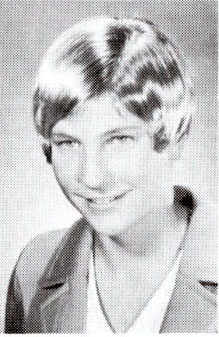
Kimla Brecht
Listen to the full story
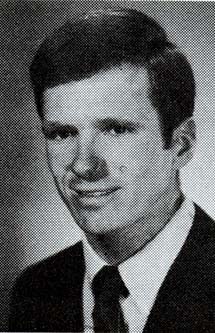
Mike Burton
Mike Burton was born in Iowa. He played basketball and football as a boy until he was severely injured when struck by a truck while on a bicycle. It was soon after this, around the age of 13, that Burton began training seriously in swimming. Burton graduated from high school in Sacramento, California and swam with Arden Hills Swim Club. He set many world and national records and was a five-time NCAA champion while at UCLA. Burton won two gold medals for the Men’s 400 Meter Freestyle and the Men’s 1,500 Meter Freestyle events at the 1968 Olympic Games. He went on to capture two more golds in the 1972 Munich Olympic Games. Burton was the first man to win two Olympic 1,500 m freestyle titles and the only American man to accomplish this feat.
Listen to the full story

Toni Cervantes
Listen to the full story
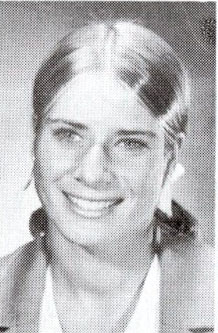
Cathy Corcione
Listen to the full story
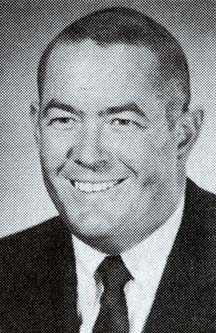
Don Gambril (coach)
Listen to the full story
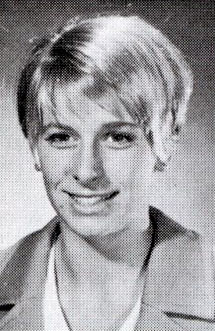
Kaye Hall (Greff)
Listen to the full story
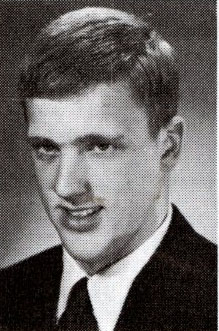
John Kinsella
Listen to the full story
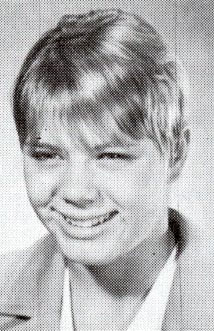
Debbie Meyer
Listen to the full story
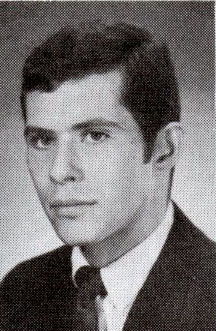
John Nelson
Listen to the full story
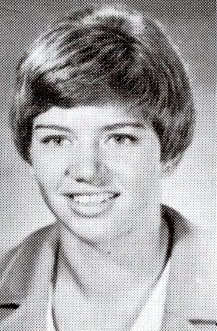
Susan Pedersen (Pankey)
Listen to the full story
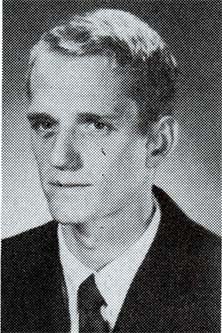
Doug Russell
Listen to the full story
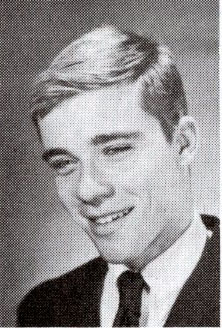
Andrew Strenk
Listen to the full story
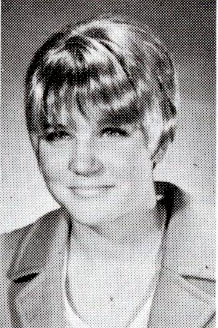
Jane Swaggerty (Hill)
Listen to the full story
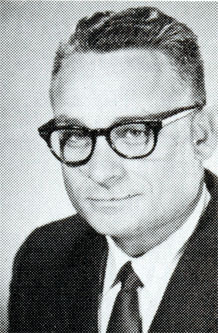
Ken Treadway (coach)
Listen to the full story
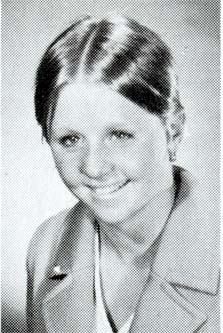
Lynn Vidali (Gautschi)
Lynn Vidali Gautschi was born and raised in San Francisco. By her early teens she was swimming with the Santa Clara Swim Club under legendary coach George Haines. At only 14 years of age, Vidali set a new world record in the women’s 200-meter individual medley. Vidali was just 16 when she won a silver medal in the women’s 400-meter individual medley in the 1968 Olympic Games in Mexico City. Four years later, she won a bronze medal in the 200-meter individual medley at the Olympic Games in Munich, Germany. Vidali attended San Jose State under an athletic scholarship and later became a physical education teacher and swim coach.
Listen to the full story
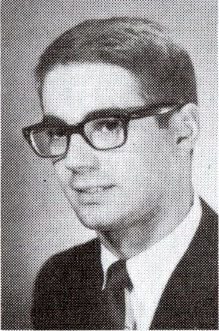
Ross Wales
Listen to the full story
Volleyball
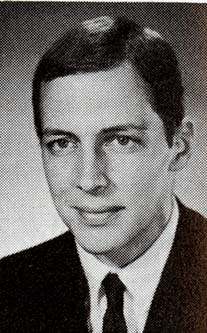
John Henn
Listen to the full story
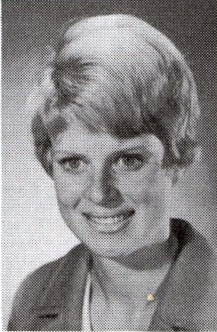
Laurie Lewis (Havel)
Listen to the full story
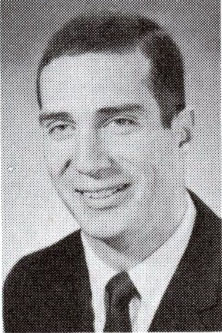
Butch May
Listen to the full story
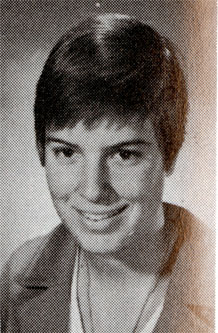
Miki Mcfadden
Listen to the full story
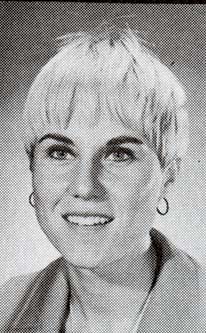
Nancy Owen (Fortner)
Nancy Owen was born in Cleveland, Ohio but spent most of her formative years in Palos Verdes, California. It was here that a physical education teacher, who played on the women’s national volleyball team, introduced Owen to the sport. Owen was a member of the very first U.S. Women’s Olympic Volleyball team when the event made its debut during the 1964 Olympic Games in Tokyo, Japan. Owen also played on the 1968 U.S. Olympic Women’s Volleyball team in Mexico City. Owen attended Pepperdine after the ’68 Games as was inducted into that university’s Athletic Hall of Fame in 1981. Fortner spent over a decade in international competition and later coached women’s volleyball at Loyola Marymount University.
Listen to the full story
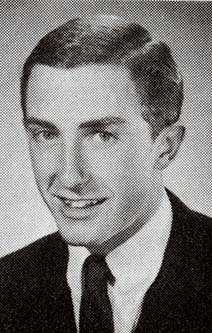
Danny Patterson
Danny Patterson was born and raised in Southern California where volleyball was a stapleof outdoor recreation and beach life. Patterson’s volleyball team took the gold medal in the ’67 Pan-American Games and the silver medal in the ’71 Pan-American Games. At 21, Patterson became one of the younger players on the 1968 U.S. Olympic Men’s Volleyball Team. Surprising everyone, the underdog U.S. team beat the favored Soviet team in the opening volleyball game in Mexico City.
Listen to the full story
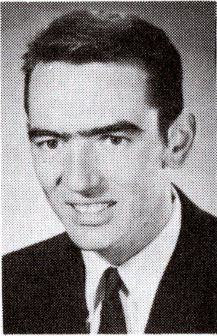
Rudy Suwara
Listen to the full story
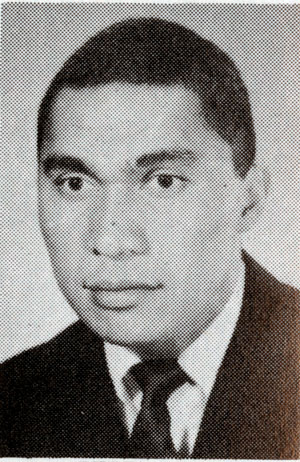
Pedro Velasco
Listen to the full story
Water Polo
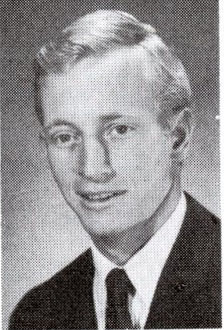
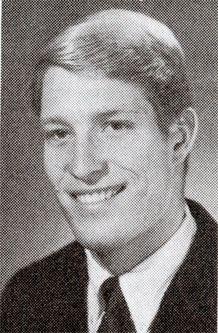
Bruce Bradley
Listen to the full story
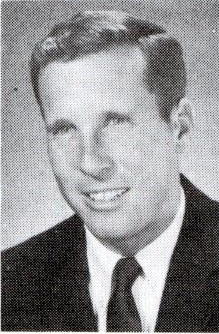
Art Lambert (coach)
Listen to the full story
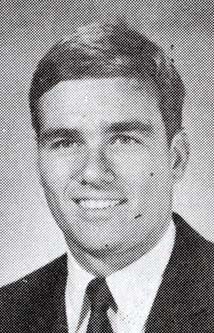
Dean Willeford
Dean Willeford was born in Dallas, Texas. Willeford enjoyed swimming before becoming involved in waterpolo at his California high school. He attended the University of California and also played club water polo with the Phillips 66 and Longbeach clubs. Willeford’s teams won silver at the 1963 Pan Am Games and gold at the 1967 Pan Am Games. He was selected All American five times before making the 1968 U.S. Olympic Water Polo Team. Willeford was inducted into the USA Water Polo Hall of Fame in 1982.
Listen to the full story
Weightlifting
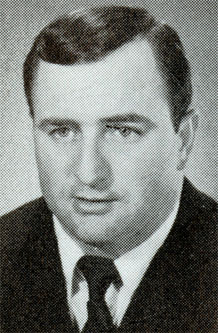
Bob Bartholomew
Listen to the full story
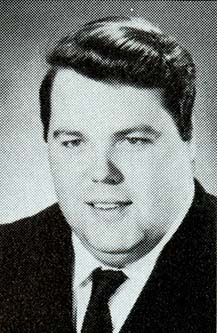
Joe Dube
Born in Altha, Florida on February 15, 1944, Joseph Dube is one of a small group of individuals who have competed for the title “”World’s Strongest Man””. In 1964 he was the first teen-aged weightlifter to clean and press 400 lbs. He earned a gold medal in the 1967 Pan Am Games, followed by a bronze in the 1968 Olympics, and a bronze and gold in the 1968 and 1969 World Weightlifting Championships. He is the first American weightlifter to total 1300 lbs in three Olympic lifts, and set twelve American and four world records.
Listen to the full story
Wrestling
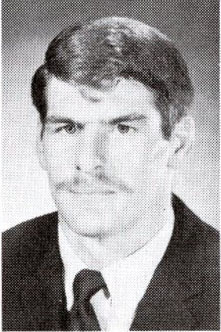
Wayne Baughman
Listen to the full story
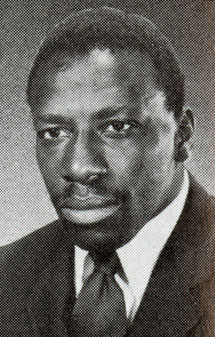
Bobby Douglas
Listen to the full story
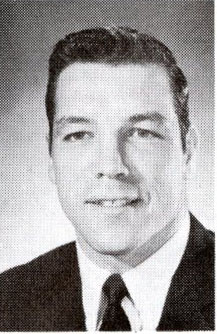
Werner Holzer
Listen to the full story
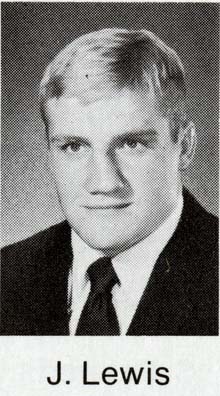
Jess Lewis
Listen to the full story
Yachting (Sailing)
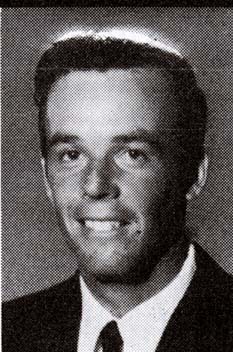
Steve Colgate
Listen to the full story
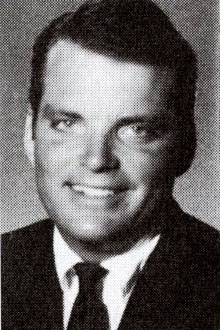
Bart Jahncke
Barton Jahncke was born and raised in New Orleans; he hails from a long line of New Orleans sailors. His uncle was Ernest Lee Jahncke, Assistant Secretary of the Navy, appointed by President Herbert Hoover. Ernest Lee Jahncke was a member of the International Olympic Committee until he was expelled for his voicing his opposition to holding the 1936 Games in Nazi Germany. Barton Jahncke graduated from Tulane University and worked for Lykes Brothers Steamship Company before winning the gold medal in the Mixed Three Person Keelboat sailing event at the 1968 Olympic Games. He was affiliated with the Southern Yacht Club of New Orleans.
Listen to the full story
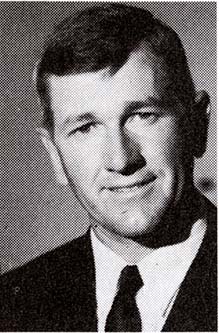
Robert James
Robert Lee James, Jr. was born in Mobjack, Virginia in 1933. Sailing was a major part of life for the James family and Robert grew up sailing the waters of Virginia. James competed in the Mixed Two Person Heavyweight Dinghy event in the 1968 Olympic Games. His partner in the event was his brother, David James, who is 16 years Robert’s junior. Though the pair did remarkably well at the U.S. Olympic trials in San Diego, they ranked 10th in their event, which was held at Acapulco Yacht Club, Bahía de Acapulco, Mexico, October 14 – 21, 1968. Though James enjoyed sailing after his retirement, today he fills his spare time with golf and gardening in his home state of Virginia.
Listen to the full story
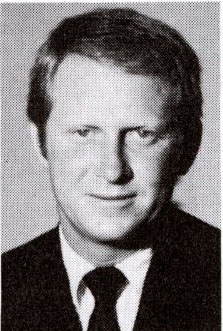
Gerald Schreck
Listen to the full story


